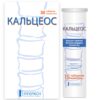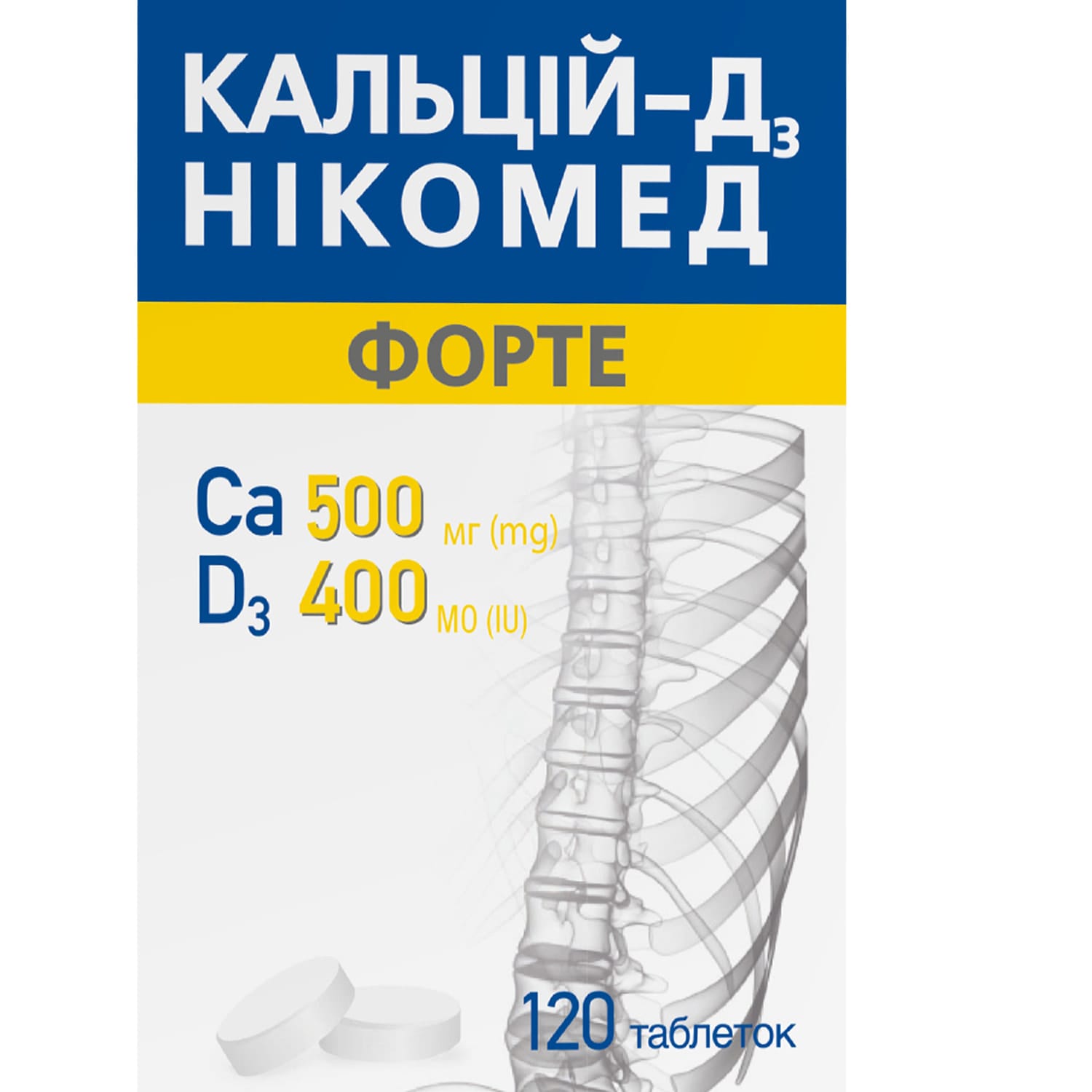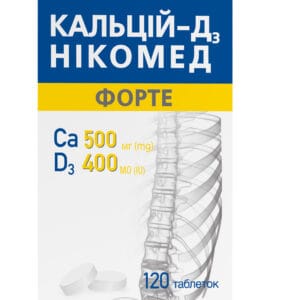🇦🇺 Australia
🇨🇦 Canada
🇨🇿 Czechia
🇩🇰 Denmark🇪🇪 Estonia
🇮🇪 Ireland
🇮🇱 Israel
🇮🇹 Italy
🇯🇵 Japan
🇲🇽 Mexico
🇵🇱 Poland
🇰🇷 South Korea
🇨🇭 Switzerland
🇬🇧 United Kingdom
🇺🇸 United States of Americaand more
🇦🇺 Australia
🇨🇦 Canada
🇨🇿 Czechia
🇩🇰 Denmark🇪🇪 Estonia
🇮🇪 Ireland
🇮🇱 Israel
🇮🇹 Italy
🇯🇵 Japan
🇲🇽 Mexico
🇵🇱 Poland
🇰🇷 South Korea
🇨🇭 Switzerland
🇬🇧 United Kingdom
🇺🇸 United States of Americaand more
Calcium-D3 Nycomed forte chewable tablets bottle 120 pcs
$38.43
Calcium-D3 Nycomed Forte – mineral supplements. Calcium, combinations with vitamin D and/or other drugs.
-
— or —
Calcium-D3 Nycomed Forte – mineral supplements. Calcium, combinations with vitamin D and/or other drugs.
Indications for use
Prevention and treatment of calcium and vitamin D deficiency in adult patients at identified risk.
Additional use of vitamin D and calcium as an adjunct to specific osteoporosis therapy in patients at risk of developing calcium and vitamin D deficiency.
Composition
- active ingredient: 1 tablet contains 1250 mg of calcium carbonate, which is equivalent to 500 mg of calcium, cholecalciferol (vitamin D3) – 10 mcg (400 IU) in the form of cholecalciferol concentrate* 4 mg;
- excipients: xylitol (E 967), lemon flavored granulate (isomalt (E 953), lemon flavor, mono- and diglycerides of fatty acids), povidone, magnesium stearate, sucralose (E 955).
Contraindication
- hypersensitivity to the active substance or to other components of the drug;
- severe renal failure (glomerular filtration rate < 30 ml/min/1.73 m2);
- diseases and/or conditions associated with hypercalcemia and/or hypercalciuria;
- kidney stone disease (nephrolithiasis);
- hypervitaminosis D.
Adverse reactions
Immune system disorders Not known: hypersensitivity reactions including angioedema, laryngeal oedema.
Metabolic: Uncommon: hypercalcemia, hypercalciuria. Very rare: milk-alkali syndrome (frequent urination, persistent headache, persistent loss of appetite, nausea or vomiting, unusual fatigue or weakness, hypercalcemia, alkalosis, renal failure) observed only in case of overdose.
From the digestive tract. Rarely: constipation, dyspepsia, flatulence, nausea, abdominal pain, diarrhea.
Skin and subcutaneous tissue disorders: Very rare: itching, rash, urticaria.
Method of application
The drug is intended for oral use. The tablet should be chewed or dissolved.
Adults and elderly patients: 1 tablet 2 times a day.
Application features
Use during pregnancy or breastfeeding
The drug Calcium-D3 Nycomed Forte can be used during pregnancy for calcium and vitamin D deficiency. The daily dose should not exceed 2500 mg of calcium and 4000 IU of vitamin D.
Calcium-D3 Nycomed Forte can be used during breastfeeding. Calcium, vitamin D3 and its metabolites can pass into breast milk, so it is necessary to take into account the intake of calcium and vitamin D3 from other sources into the child’s body.
Children
The drug is not intended for use in children.
Ability to influence reaction speed when driving vehicles or other mechanisms
There is no known data on the effect of Calcium-D3 Nycomed Forte on the reaction speed when driving vehicles or other mechanisms.
Overdose
Symptoms. Overdose of the drug can lead to hypervitaminosis D and hypercalcemia. Symptoms of hypercalcemia are: anorexia, thirst, nausea, vomiting, constipation, abdominal pain, muscle weakness, increased fatigue, mental disorders, polydipsia, polyuria, bone pain, nephrocalcinosis, nephrolithiasis, cardiac arrhythmias in severe cases. Severe hypercalcemia can lead to coma and death. Persistently high levels of calcium in the body can lead to irreversible kidney damage and soft tissue calcification.
Patients who take large amounts of calcium and alkalis that are absorbed may develop milk-alkali syndrome; such patients require hospitalization.
Treatment. Symptomatic and supportive therapy. The drug should be discontinued. Thiazide diuretics and cardiac glycosides should also be discontinued. Patients with impaired consciousness should be given plenty of fluids and a calcium-restricted diet should be followed. Depending on the severity of the overdose, loop diuretics, bisphosphonates, calcitonin, and corticosteroids may be required, either alone or in combination. Serum electrolytes, renal function, and urine output should be monitored. In severe cases, electrocardiogram (ECG) and central venous pressure (CVP) should be monitored.
Interaction with other medicinal products and other types of interactions
Thiazide diuretics reduce urinary calcium excretion. During concomitant therapy, serum calcium levels should be monitored as the risk of hypercalcemia increases.
Calcium carbonate may interfere with the absorption of tetracycline drugs, so these drugs should be taken at least 2 hours before or 4-6 hours after taking Calcium-D3 Nycomed Forte.
Hypercalcemia may potentiate the toxicity of cardiac glycosides when used with calcium and vitamin D preparations. It is necessary to monitor cardiac function using ECG, serum calcium levels, and the patient’s clinical condition.
To prevent reduced absorption of bisphosphonates, it is recommended to take Calcium-D3 Nycomed Forte no earlier than 1 hour after taking them.
With simultaneous use of calcium, the effectiveness of levothyroxine may be reduced due to reduced absorption. Levothyroxine should be taken at least 4 hours after taking Calcium-D3 Nycomed Forte.
Simultaneous use of calcium may affect the absorption of quinolone antibiotics. Quinolone antibiotics should be taken 2 hours before or 6 hours after taking Calcium-D3 Nycomed Forte.
Calcium salts may reduce the absorption of iron, zinc and strontium ranelate. Therefore, iron, zinc and strontium ranelate preparations should be taken at least 2 hours before or after taking Calcium-D3 Nycomed Forte.
Treatment with orlistat may potentially affect the absorption of fat-soluble vitamins (e.g. vitamin D3).
Storage conditions
Keep the bottle tightly closed at a temperature not exceeding 30 ° C. Keep out of the reach of children!
You may also like










Reviews
There are no reviews yet.